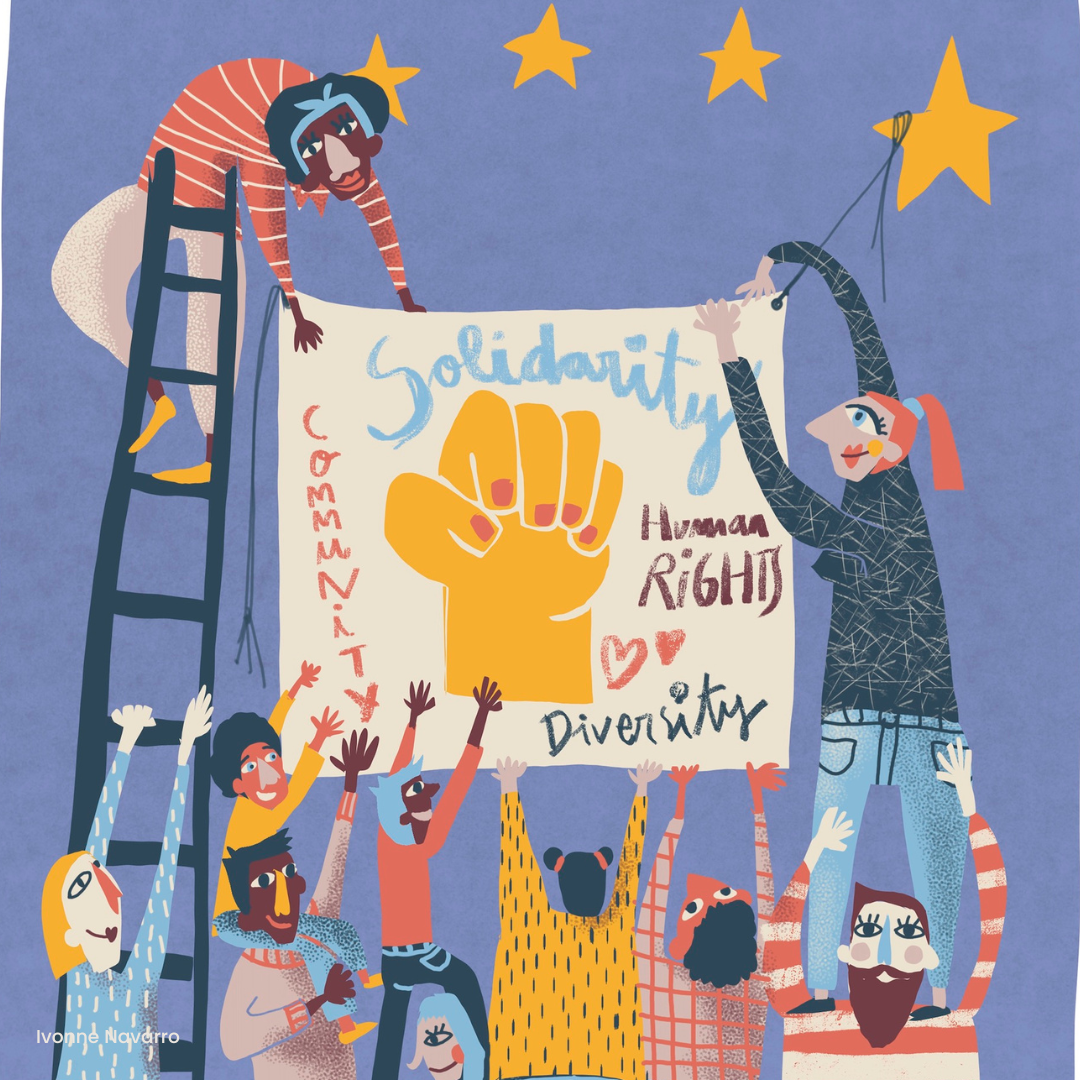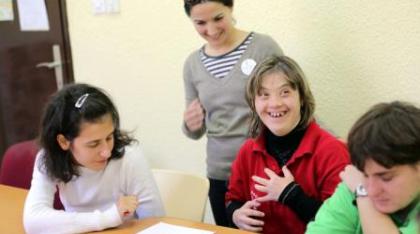Spotlight
A selection of resources from across the Federation

Abortion Care and Costs in Europe and Central Asia
IPPF EN carried out research into the economic burden that women face in accessing abortion care in Europe and Central Asia. This factsheet provides a snapshot of the findings.
Filter our resources by:


| 02 February 2023
2023 - 2028 Strategy
For 70 years IPPF has championed and delivered quality services, comprehensive information and advocated for just laws so that more people in more places under more circumstances may realize their sexual and reproductive health and rights (SRHR). Started with an act of international solidarity between activists from just a handful of countries, IPPF has since grown into a broad and diverse community of services providers and advocates that stretches around the Earth. Our very existence manifests just how the demand for dignity in sexual and reproductive health and rights is universal to people the world over. But that world is changing rapidly. Tough challenges must be confronted – the toxic legacies of longstanding racism, sexism and homophobia, for example; the deepening impacts of the climate crisis, violence, and inequalities; the escalating consequences of new technologies, population displacements, and habitat destruction. Wherever such dynamics impact people’s lives, IPPF knows enjoyment of SRHR is impacted too. Whenever people confront humanitarian crises, we know their SRHR are thrust into crisis too. Whoever is subject to prejudice, bigotry, or exclusion, has their access to SRHR also eroded. We know that the worst consequences of those injustices are borne by young people in the poorest of communities, in the toughest of places, facing the fewest opportunities. To be impactful in a world of change, IPPF must change too. That is what Strategy 2028 is all about: changing IPPF so it is well equipped to uphold SRHR for those who are left out, locked out or left behind. Our Strategy 2028 sets out a familiar path but in a new direction over far tougher terrain to that clear destination. We will walk that path shoulder to shoulder with young people, and with individuals and communities bearing the full brunt of stigma and prejudice. At each step, we will defend, protect, and celebrate safety, pleasure and wellbeing in sex and reproduction. At every turn, we will denounce powers and authorities who, through policy, practice, and law, undermine dignity and human rights in those intimate realms. And, as IPPF, we will be accountable for who we are, what we do and how we do it. That is our Strategy 2028. It is with immense pride that the IPPF Board of Trustees shares this strategic itinerary with you. We very much hope you will travel this road with us – in your own realities, communities, and contexts. Let’s do that together. Let’s come together, for sexual and reproductive dignity for all - for each and every one of us, to the exclusion of none of us, in the interests of all of us. Kate Gilmore, Chair, BoT, IPPF

| 31 January 2023
The upcoming Presidencies - An opportunity for gender equality and SRHR
Over the last few years, the EU has been facing many challenges in the realization of its core values: the rule of law, democracy, human rights, equality, especially gender equality, and women’s rights. The upcoming years are an opportunity for the EU to reflect on the direction it wants to take, the values it should stand for, and what more it can do to uphold and defend them. The EU should strive towards a world where everyone can enjoy the same rights, and lead free and safe private and family lives, free from sexism, coercion, and violence. In this crossroads moment, the upcoming three Council of the EU Presidencies – Sweden, Spain, and Belgium – have a critical role to play to uphold EU values. We call on them to adopt a feminist approach and show stronger leadership to further advance gender equality and women’s rights, including sexual and reproductive health and rights (SRHR), in the EU and beyond. Read below our recommendations to the next Presidencies to lead the EU on a feminist path.

| 01 January 2023
Come Together: IPPF Strategy 2028
For 70 years IPPF has championed and delivered quality services, comprehensive information and advocated for just laws so that more people in more places under more circumstances may realize their sexual and reproductive health and rights (SRHR). Started with an act of international solidarity between activists from just a handful of countries, IPPF has since grown into a broad and diverse community of services providers and advocates that stretches around the Earth. Our very existence manifests just how the demand for dignity in sexual and reproductive health and rights is universal to people the world over. But that world is changing rapidly. Tough challenges must be confronted – the toxic legacies of longstanding racism, sexism and homophobia, for example; the deepening impacts of the climate crisis, violence, and inequalities; the escalating consequences of new technologies, population displacements, and habitat destruction. Wherever such dynamics impact people’s lives, IPPF knows enjoyment of SRHR is impacted too. Whenever people confront humanitarian crises, we know their SRHR are thrust into crisis too. Whoever is subject to prejudice, bigotry, or exclusion, has their access to SRHR also eroded. We know that the worst consequences of those injustices are borne by young people in the poorest of communities, in the toughest of places, facing the fewest opportunities. To be impactful in a world of change, IPPF must change too. That is what Strategy 2028 is all about: changing IPPF so it is well equipped to uphold SRHR for those who are left out, locked out or left behind. Our Strategy 2028 sets out a familiar path but in a new direction over far tougher terrain to that clear destination. We will walk that path shoulder to shoulder with young people, and with individuals and communities bearing the full brunt of stigma and prejudice. At each step, we will defend, protect, and celebrate safety, pleasure and wellbeing in sex and reproduction. At every turn, we will denounce powers and authorities who, through policy, practice, and law, undermine dignity and human rights in those intimate realms. And, as IPPF, we will be accountable for who we are, what we do and how we do it. That is our Strategy 2028. It is with immense pride that the IPPF Board of Trustees shares this strategic itinerary with you. We very much hope you will travel this road with us – in your own realities, communities, and contexts. Let’s do that together. Let’s come together, for sexual and reproductive dignity for all - for each and every one of us, to the exclusion of none of us, in the interests of all of us. Kate Gilmore, Chair, BoT, IPPF

| 12 December 2014
Preventing sexual abuse and violence against young people with learning disabilities - policy recommendations
People with learning disabilities have a right to be protected from sexual violence and abuse, yet 90% of them will experience sexual abuse at some point in their life, most frequently from family members or others in their close circle. Safeguarding this right can only be achieved if people with learning disabilities are empowered to protect themselves. Increasing their autonomy in relation to their sexual lives, relationships, bodies and privacy is key. But how can people with learning disabilities be expected to say no to sexual violence and abuse, if even the smallest aspects of daily life are decided for them by others? In this context, it is crucial to strengthen their overall autonomy, active participation and integration in society, and the transition from institutions to community based-care. The 2-year ‘Keep me Safe’ project aimed to empower young people with learning disabilities to protect themselves against sexual abuse and violence across Europe. It was co-funded by the European Commission Daphne III Programme. On 11-12 December 2014, IPPF Member Associations, NGOs, parents of young people with learning disabilities, decision-makers and authorities from Bulgaria, Cyprus, Germany, Ireland, Latvia, The Netherlands, Macedonia, Romania, Spain, and UK, as well as staff from the IPPF EN regional office, gathered in Madrid for its final event. Here you can download the set of Policy recommendations they developed and endorsed at the meeting.

| 28 September 2014
Women's Voices on 28 September - Global day of action for access to safe and legal abortion
Every day, everywhere women have abortions. In fact, one in three women will have an abortion in their lifetime. Your sister, mother, daughter, partner, friend. Yourself. However, many countries around the world continue to restrict access to safe and legal abortion. Globally, 66 countries either prohibit abortion entirely or permit it only to save a woman's life. Approximately one quarter of the world's population resides in these countries. Too many women still do not have autonomy over their reproductive lives, and are not able to choose to end an unwanted pregnancy under safe conditions with the support of a trained provider. That is why on September 28, the Global Day of Action for Access to Safe and Legal Abortion, IPPF will join with partners across the world to call for universal access for safe and legal abortion. In our region, from Skopje to Stockholm, Tirana to Dublin, our Member Associations are marking the day with activities ranging from press conferences, advocacy workshops, public debates organised by youth activists and short movie launches to providing information and education materials to schools; dedicated social media campaigns; clinic open day with free sexual and reproductive health services, and appearing in newspapers and TV documentaries to make the case for safe and legal abortion. Criminalising abortion does not reduce the number of abortions, all it does is push abortion underground and rates of unsafe abortion increase. In fact, the lowest abortion rates in the world are in regions with some of the most liberal legal frameworks for the provision of abortion services. A woman’s right to safe, legal abortion is under threat in Europe too. The abandoning this week of a regressive anti-abortion bill in Spain is a step in the right direction and an illustration of what can be achieved through the joint action of civil society organisations. But the fact remains it should never have been on the legislature’s books in the first place. It shows that rights can be rolled back at anytime, anywhere. The women who suffer as a consequence of restrictive laws are not just numbers. Each woman who seeks an abortion does so under a unique set of circumstances. IPPF has produced a series of short films to tell the stories of some of these women. Women like Juliette from France, who just like millions of other women around the world, decided to have an abortion following an unintended pregnancy. In this video Juliette describes the challenges she faced in trying to find accurate and unbiased information about abortion, and she shares her thoughts on the role of men in the abortion process. You can watch the other videos in the series here. Unwanted pregnancies will always be a fact of life and abortions will continue. So, join us on September 28 in calling for governments to make abortion safe and legal abortion everywhere. Read a guest blog on the "state shambles" of abortion in Ireland by IFPA, IPPF's Irish Member Association here.

| 21 July 2014
HIV Prevention Report Cards for Sex Workers
This series of four Report Cards explores the challenges of HIV prevention for sex workers in Kazakhstan, Kyrgyzstan, Tajikistan and Russia. It was produced by IPPF European Network with the support of the Sex Workers' Rights Advocacy Network (SWAN) and the United Nations Population Fund (UNFPA). The Report Cards are available for download here in English and Russian.

















